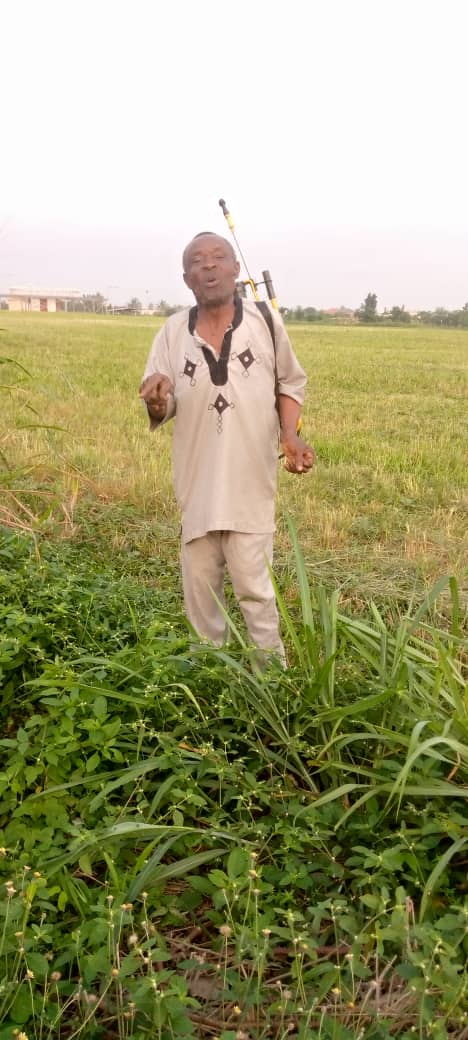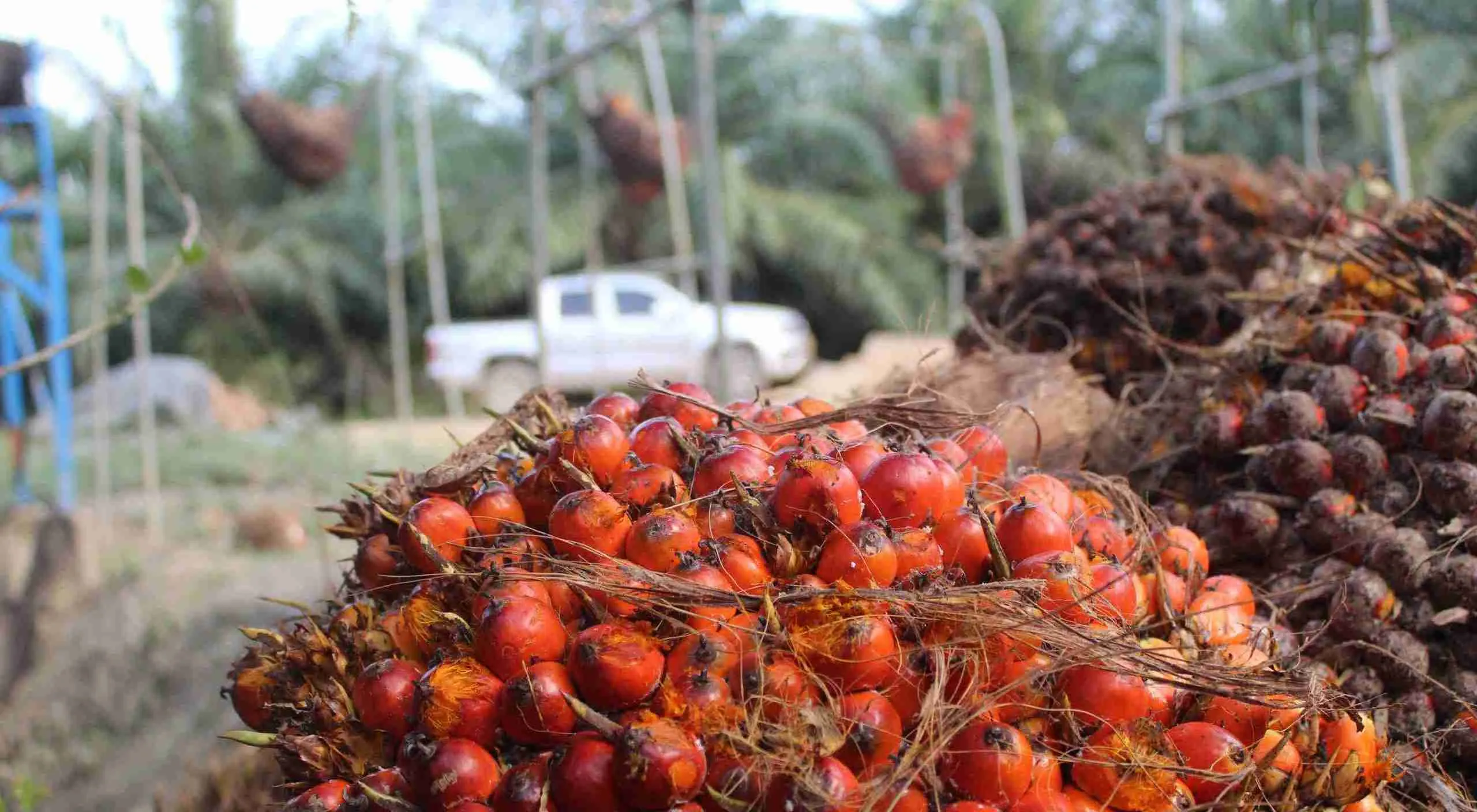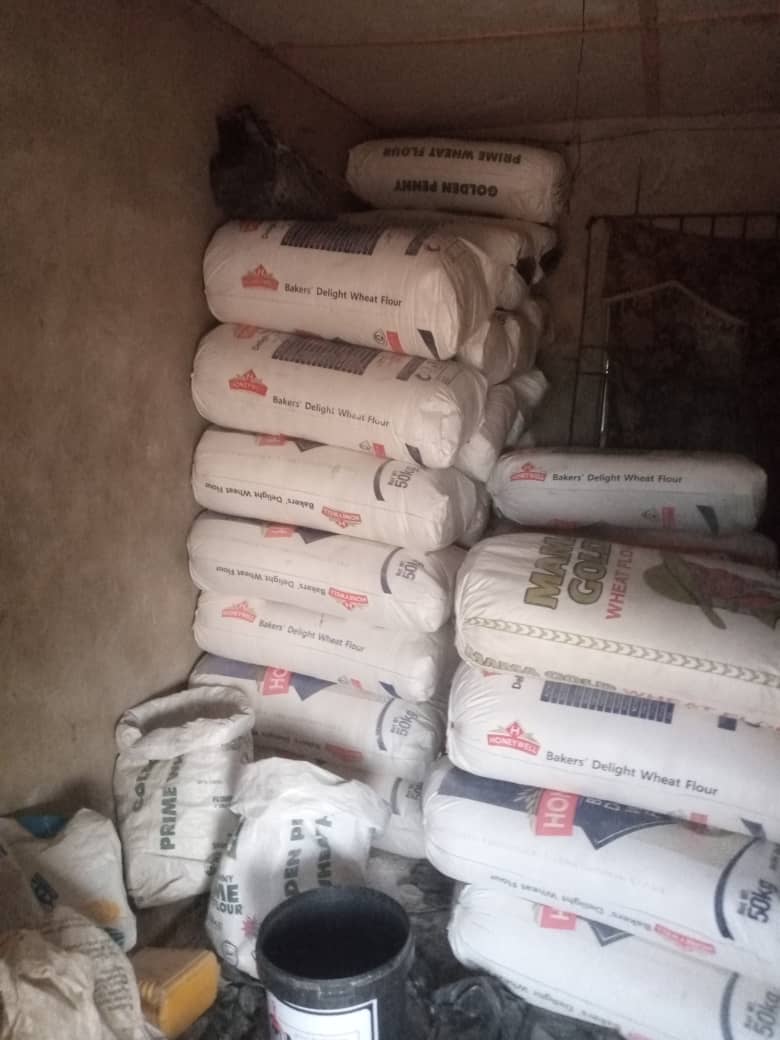By the time he started out as a farmer he was sufficiently interested and learned about the art of farming that it would be wrong to say he went in out of sheer necessity or because he had no options. Yes, he took up a job on a farm when it was becoming difficult to get employment, shortly after he concluded his national service. But by the time he became a farmer himself he had no doubt that he was on his sure ground. In the over three decades that he has been in the business of agriculture he has had good stories to tell, of success and impartation of knowledge. He has also successfully adapted to situations when occasions called for it. Within that space of time, he has also learnt many things about the challenges of the farmers and how much impact the government policies may have had on them.

In this interview, Olanrewaju Fatai Ibrahim, a 1986-graduate of Philosophy from the prestigious University of Ife, now Obafemi Awolowo University, Ile-Ife, bares his mind on many things about farming, government policies, officials implementing the policies, and what shapes the results come out of the often-advertised government interventions. His interview will be published in a series. The first being his experience of the much talked about Anchor Borrowers Programme, ABP. In this excerpt Olanrewaju tells us why Anchor Borrowers Programme failed.
Successive governments in Nigeria roll out policies designed to improve performance in the agriculture sector, yet farmers continue to talk about challenges inhibiting their effort. Is it that those policies don’t impact the farmers, or they are just not adequate?
Most of the government policies on farming are just arm-chair policies.
Day in day out we talk about the government putting money on agric. That money is being spent by those in the various Agric offices. The money does not get to the real farmers. In fact, it was bad during the last regime (President Muhammadu Buhari administration) for, as you can read it in the newspapers, trillions of naira voted for farmers under ANCHOR borrowers programme were stolen by govt officials. Practically stolen.
You would hardly find one-tenth of that money getting to the real farmers.
May be the farmers did not organize themselves well to benefit from ANCHOR BORROWERS’ MONEY?
One of the most organized set of people in Nigeria is farmers’ group. To say farmers are not organized in Nigeria is not true because you know them, most farmers are very gullible. The moment you say the government is bringing something; you get to see them organizing themselves. They always believe that something must come from the government and at the end of the day, if that thing will even come, then those people that are supposed to release it to them are the people that will sit on it. I have practical experience on what happened now.
Can you share that experience with us?
Well, ehmm (laughs). Under the Anchor borrowers programme there is this cassava Anchor borrower’s programme then which they asked us to go and open account with NIRSAL (Nigeria Incentive-Based Risk Sharing system for Agricultural Lending). This CBN bank is in post offices all over the places. We did the capturing and everything we needed to do. Without even applying, this was what we needed to do anyways. They just distributed money into those accounts and the money you cannot even touch. Before you know it, the money came in (and) before daybreak, they have taken out the money under so many funny guises like they gave the money to one service provider that are not even known to the farmers. I am a farmer in Ogun state. They said they gave the money to somebody in Kaduna, a service provider to come and plough land for me in Ogun state! Somebody I don’t know from Adams. They took out another part of the money and said it was for the cassava stems, without the farmers seeing the money.
There’s already a lien on the account and even though there is a lien on the accounts, you find the money being taken out without the authorization of the person who owns that account to God knows who.
Eventually, they now asked the farmers to come and refund the money which they had not taken. People started raising eyebrows and say how do we get to refund the money we did not know what happened to? Later EFCC (Economic and Financial Crimes Commission) and DSS (Directorate of State Security) came in and some of those involved were arrested. I heard that some of them have been refunding the money. (Former CBN governor, Godwin) Emefiele is part of the scam.
 Emefiele was part of the scam?Yes, Emefiele was part of the scam. Another one was done by a popular bank (name withheld) where our account was credited without our consent and there was a lien on the account. An account that has a lien on it, how do you operate such account? The account was opened in our names without our consent.
Emefiele was part of the scam?Yes, Emefiele was part of the scam. Another one was done by a popular bank (name withheld) where our account was credited without our consent and there was a lien on the account. An account that has a lien on it, how do you operate such account? The account was opened in our names without our consent.
May be because you applied individually and not through a body like cooperative?
No, no, no, no! You probably don’t get what happened. We formed a blore. Under the anchor borrowers programme we formed a blore under an off taker of what you are going to produce as a farmer. The off taker will submit your name, the Centra Bank of Nigeria will send some people to come and verify who we are, so all said and done, it was presented to open account like that of NIRSAL. Money was paid in without any due process of applying for loan.No form was given to you?No loan form was given to us to say that we applied for loan or these are the terms of the loan you are taking. Even the Agricultural Credit Guarantee Scheme Fund (ACGSF)

This agricultural credit guarantee scheme that preceded this anchor borrower’s programme, has been distributed through these Micro finance banks (MFB). In fact, you have them giving you funny and cut-throat interest rates.
What?
When the money is being given, it is there as part of the conditions that you cannot divert the money to other businesses. (That notwithstanding)
some of these MFBs will take part of the money, without your (consent), to buy their own Bank shares.
The shares you never subscribed for. (Whereas) under the law, if you have problem with the farm, the reason why they call it credit guarantee scheme was if you have a general complaint as a farmer that probably your farm got destroyed by rainfall, price fell, flood and what have you, you fall back to them, and they give you the opportunity to micro-manage the losses. At the Micro Finance Bank (MFB) the interest was supposed to be in prorata but they turned it to compound interest. Where they said the interest rate should be 14% MFB will turn it to 60%. The whole thing is just shoddy and as far as I want to believe, I wouldn’t say in other part of the country, probably in the northern state, where they (farmers) are being helped because they do their irrigation for them and some other considerations, but over here in the southwest, forget it. Nobody is ready to help the farmer apart from land which are given to the farmers.












